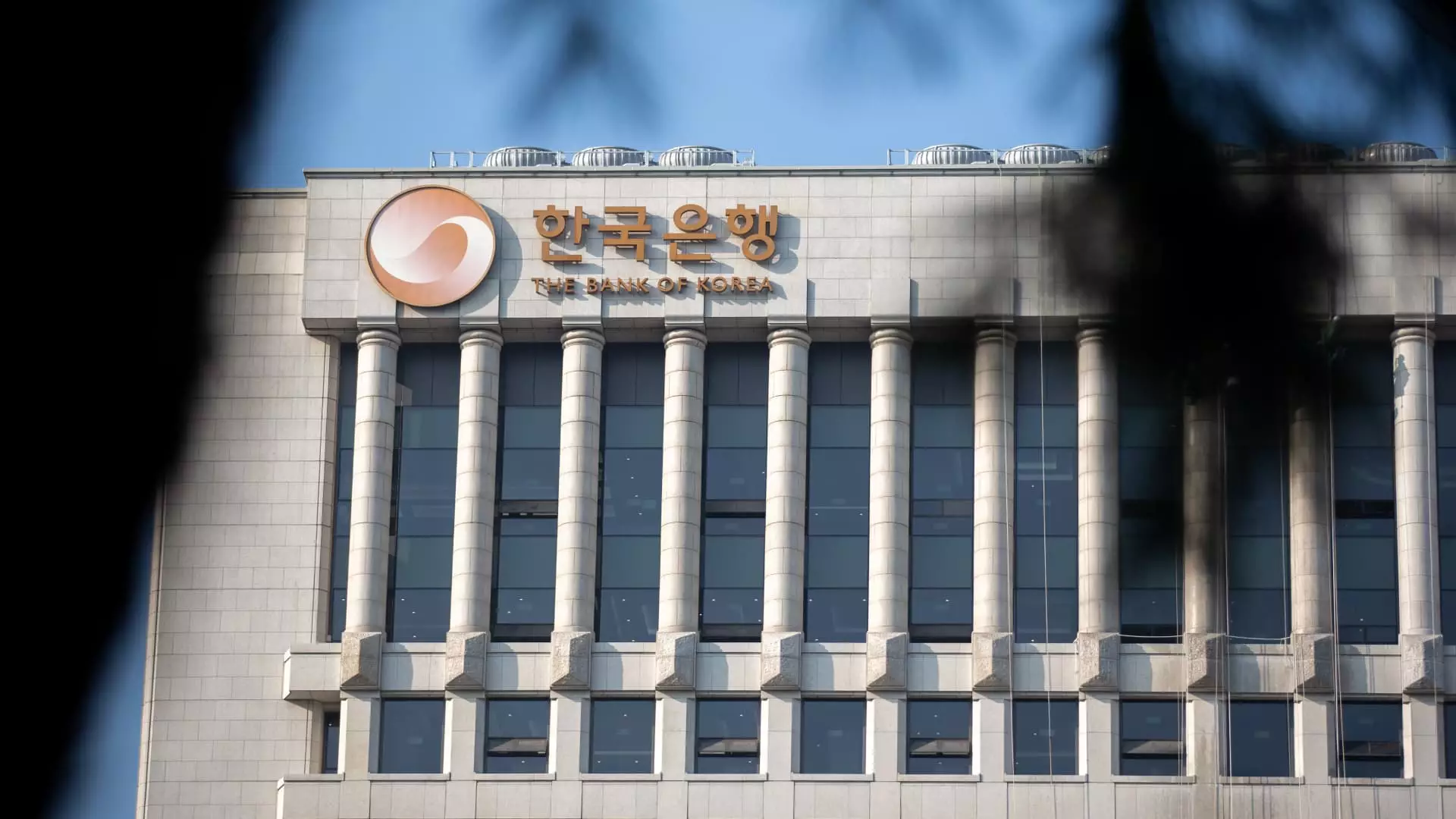In a bold move reflecting the precarious economic landscape, South Korea’s central bank has slashed its policy interest rate by 25 basis points, bringing it down to 2.5%. This decision is emblematic of a nation grappling with the dual adversities of political instability and the ripple effects of international trade tensions, particularly from the U.S. The Bank of Korea’s (BOK) recent policy adjustment marks its fourth rate cut in just six meetings, signaling a clear response to an economy that is facing mounting challenges. As we reflect on these developments, it becomes imperative to probe deeper than mere numbers and assess the political and economic realities fueling such drastic fiscal maneuvers.
A Political Quagmire
At the heart of South Korea’s current economic malaise is a palpable political turmoil, exacerbated by the controversial presidency of Yoon Suk Yeol. His failed attempt to impose martial law in December not only unraveled public trust but also cast a long shadow over the country’s political landscape. The recent snap elections, set for June 3, follow Yeol’s impeachment, creating an atmosphere of uncertainty for both citizens and investors alike. A robust democracy thrives when given the opportunity to vent through elections, but every misstep in governance raises a question mark over a country’s stability and future. The urgency of forming a new government underscores the crucial need for decisive leadership that can sanely address economic stagnation without inciting further backlash.
Tariff Tensions and External Pressures
Adding to the confusion is the looming threat posed by U.S. tariffs initiated during the Trump administration. The imposition of a staggering 25% reciprocal tariffs has, though temporarily suspended, wrought havoc on South Korea’s export-driven economy. South Korean leaders are racing against the clock to broker an agreement with the U.S. before the approaching deadline, but the looming elections create an environment rife with uncertainty. It’s reasonable to speculate that the true potential of South Korea’s economic prowess may be stymied until the political landscape stabilizes.
The notion of engaging in tariff negotiations while staring at electoral uncertainty should send shivers down the spine of any economic strategist. Discussions of economic cooperation will likely be sidelined as political candidates jockey for positions, arguing over policies that reflect their personal agendas rather than the collective need for economic recovery. This is potentially catastrophic for a country that faces impending economic contraction, illustrated by a 0.1% dip in the GDP in the first quarter—an unsettling sign of worsening conditions after a period of growth.
Forecasts and Fiscal Challenges
The BOK’s projection is sobering; it downgraded the GDP growth forecast for 2025 to a mere 0.8%. Such a reduction reveals a stark truth: the fiscal policies currently in play do not adequately address the increasingly complex issues surrounding South Korea’s economy. Gareth Leather, a senior economist from Capital Economics, emphasizes the necessity of robust fiscal stimulus, citing the anticipated boost in consumer spending post-election. However, this optimism feels misplaced given the persistent undercurrents of recession in the property sector and the ongoing export disruptions.
The subsequent drop in the South Korean won against the U.S. dollar and the modest uptick in the Kospi stock index following the announcement speak to a fragile market sentiment. Investors momentarily cheered the rate cut, sensing a potential lifeline; however, the prevailing economic conditions remain far from stable. The fundamental question arises: Can transient measures like interest rate cuts act as sufficient band-aids over deeper systemic issues?
The Path Ahead
As South Koreans prepare to cast their votes in a few short days, they must reflect carefully on their collective future. The newly-elected government will have the enormous responsibility of not just stabilizing the economy but also fostering an environment ripe for recovery. This requires a calculated balance of bold policy decisions, effective diplomacy, and a commitment to democratic principles that prioritize the populace over partisan gains. The road ahead is certainly fraught with challenges, but it may also serve as a crucible for profound transformation, demanding innovators and leaders capable of emerging from the political smoke.

Leave a Reply